热门推荐商品
-
神奇的逻辑思维游戏书 5-13岁提升孩子逻辑思维训练
¥22.50
-
正面管教 修订版 如何不惩罚不娇纵有效管教孩子 育儿百科 最温柔的教养 樊登 早教书
¥19.00
-
一本书读懂中国茶
¥24.90
-
中国国家地理:最好的时光在路上
¥24.90
-
正面管教儿童行为心理学
¥19.00
-
正面管教男孩100招(养育男孩全书)父母的语言话术
¥18.00
-
陪孩子度过7~9岁叛逆期(7-9岁关键养育 叛逆不是孩子的错 男孩女孩自驱型成长)
¥16.30
-
女生呵护指南
¥39.00
-
西尔斯怀孕百科
¥41.50
-
协和医院专家教你吃对不生病:糖尿病吃什么宜忌速查
¥14.90
- 商品名称:二语阅读成分分析:基于元认知知识和词汇广度
- 商品编号:11282433
产品特色
PrefaceWith China’s fast economic growth, many people in China need to read at reasonably high levels of English proficiency to further their personal and professional goals and to better their lives. This book aims to explore the reading process of Chinese adult EFL learners and to provide useful information for those who want to improve their English reading abilities. Specifically, this book is intended to explore how the selected Chinese tertiary EFL readers utilize metacognitive knowledge in their academic reading process, to discover the possible differences between successful readers and less successful readers in utilizing metacognitive knowledge in their reading and to map out the relationships among metacognitive knowledge, vocabulary size and EFL reading comprehension ability. This book should be of value to researchers, teachers and graduate students who are interested in second language reading teaching and research.
The study reported in this book consisted of two phases. Phase One was designed to elicit and identify the types of metacognitive knowledge utilized by the Chinese tertiary EFL readers and to capture, if any, the possible differences between successful and less successful readers. Five less successful and five successful Chinese tertiary EFL readers participated in the think-aloud reading task and the interviews in Phase One study. Twenty-nine types of metacognitive knowledge were identified and categorized into nine subcategories under two major categories of person knowledge and strategy knowledge following Flavell’s metacognitive framework (1979). Differences between the selected successful and less successful readers were discovered on the motivational and affective characteristics such as reader role, goal of reading, interest and self-efficacy between the two groups. The successful readers were more actively engaged in reading and provided interpretations of the text on their own authority. They also demonstrated an accurate self-knowledge and higher levels of task-mastery goal and interest toward reading.
Phase Two further explored the relationships among metacognitive knowledge, vocabulary size and EFL reading comprehension through a large-scale survey that based itself on the metacognitive types identified in the first phase and from the existing literature. A total of 548 non-English major sophomores participated in the survey. The instruments included Questionnaire on the Metacognitive Knowledge of EFL reading comprehension, Vocabulary Levels Test (Nation, 1990) and EFL Reading Comprehension Test. The findings revealed that Chinese tertiary EFL readers had a good command of 2,000-word level and approached 3,000-word level. Vocabulary size did not only exert direct influences on EFL reading comprehension ability, but also played a significant moderating role in regulating the effect of metacognitive knowledge on EFL reading comprehension ability. When their vocabulary size reached above the threshold of 3,000 words, metacognitive knowledge played an increasing role in EFL reading comprehension ability.
I am much indebted to many people who have contributed to this piece of work. First of all, I would like to express my heartfelt thanks to my Ph.D. supervisors, Professor Cecilia Chun and Professor Yujing Ni for their constant encouragement, insightful advice, patient listening, enthusiastic emails and delicious meals when I was a research student at the Chinese University of Hong Kong.
Hearty thanks also go to Professor Peter Skehan who not only inspired me with his most interesting lectures on second language acquisition and psycholinguistics, but also gave me many invaluable comments as well as suggestions at each stage of my research; to Professor Wai-ock Chan who gave me detailed comments on Chapter Four, Chapter Five and Chapter Six; to Professor David Qian for offering me the research instruments on second language vocabulary testing; to Professor Christiane Dalton-Puffer who kindly discussed with me about the interpretation of my research findings; to Professor Nikolaus Ritt who helpfully invited his colleagues to discuss with me about my research difficulties; to Dr. Xihua Zeng who patiently discussed with me the research design at the initial stage of my research; and to Mr. Xiang Li who kindly helped me edit the references and proofread the manuscript.
I would like to thank Dr. Qishan Chen, Dr. Jimei Dong, Dr. Regina Ko, Dr. Helga Linhart, Dr. Huanv Xu, Ms. Esther Wu and Dr. Yongping Zhang for their warm help and encouragement at different stages in my writing.
Special thanks should go to Professor Jianglin Zhou for his tremendous help in my data collection. I also appreciate cooperation from all the participants in my study.
Finally, I dedicate this book to my parents. Their smile reminds me of the bright sunshine even at the most difficult moment of my life. Their love always encourages me to achieve higher in my academic career.
内容简介
《二语阅读成分分析:基于元认知知识和词汇广度》以中国大学生为研究对象,采用有声思维法、访谈法和问卷法等多数据来源,系统探讨了中国大学生在英语阅读过程中运用元认知知识的特点,并调查了元认知知识、词汇广度和英语阅读能力三者之间的关系。结果表明,非成功阅读者和成功阅读者在阅读策略、目的、兴趣、自我效能和角色等方面均存在差异;学生词汇广度不仅对学生的阅读能力发生显著影响,而且还调节元认知知识对阅读能力的影响。研究为语言阈值假说提供了依据,充实了第二语言阅读理论研究。《二语阅读成分分析:基于元认知知识和词汇广度》发展了元认知知识的概念,提出元认知知识不仅包含认知成分,还包含自我效能和目标设定等动机性成分,并据此发展出一个二语阅读元认知知识的编码系统。在方法论方面,本书采用质化和量化相结合的方法,以探索性的质化研究开始,形成问卷,研究方法严谨规范。本书完善了有声思维法在实际运用中的一系列操作性问题,可为同类研究的展开提供参考。本书适合外语教师和应用语言学专业的研究人员和研究生阅读。


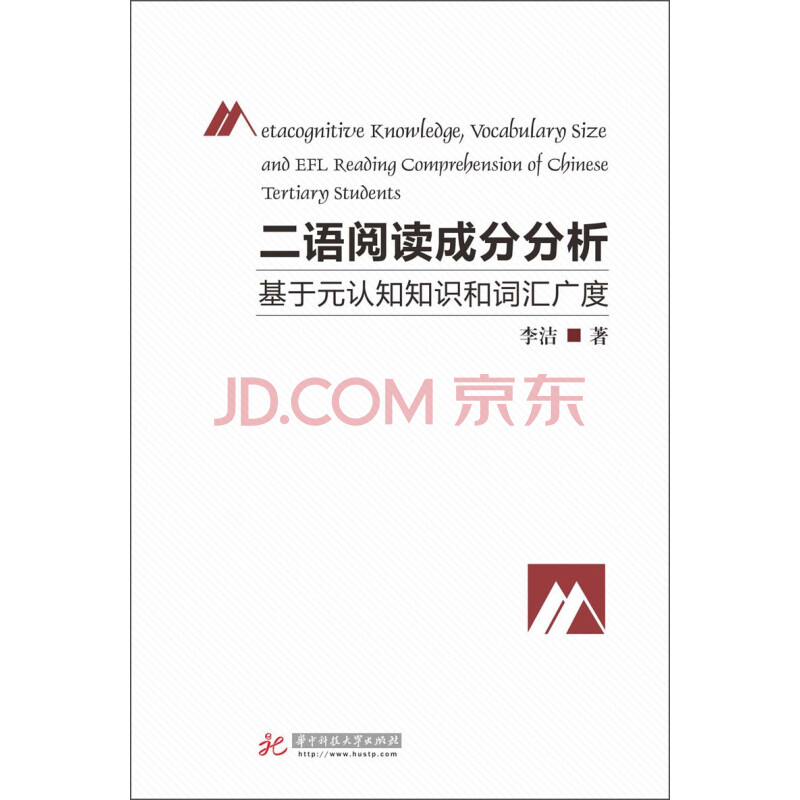
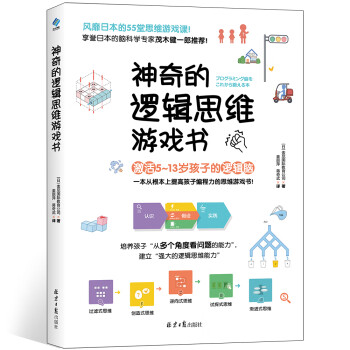



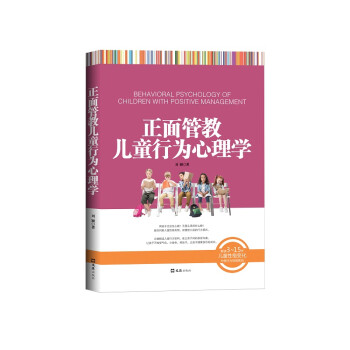

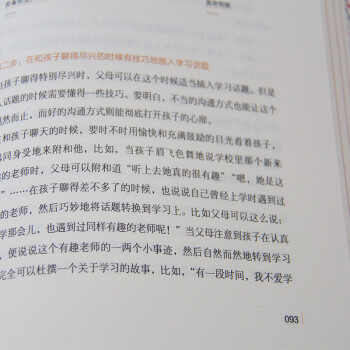
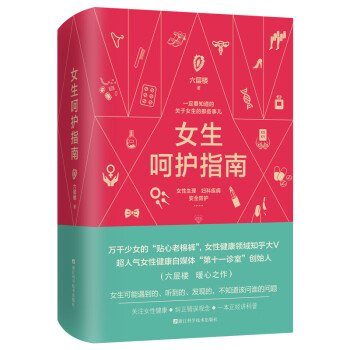







 沪公网安备 31010402003631号
沪公网安备 31010402003631号